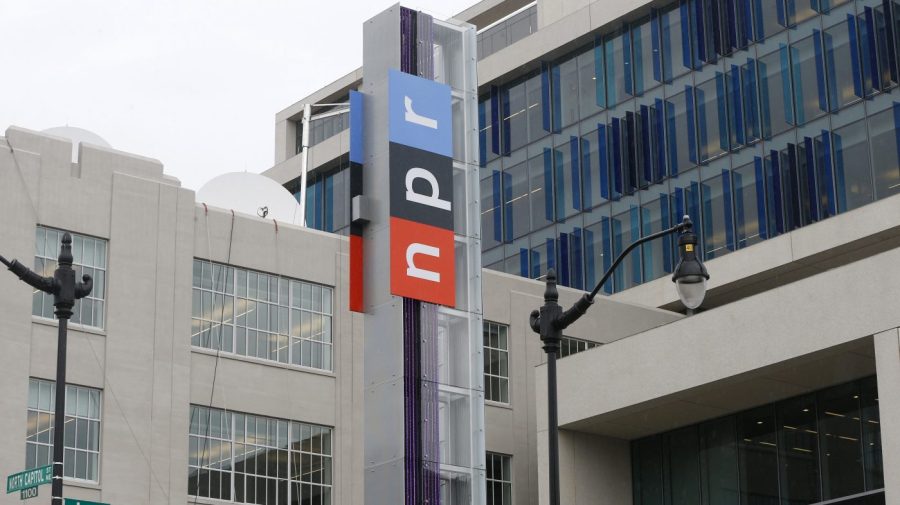
President Trump and his allies are showing renewed vigor as they set their crosshairs on a longtime target for the right: public media.
Recent moves by the Federal Communications Commission (FCC) and Republican lawmakers scrutinizing outlets like NPR and PBS over perceptions of liberal bias and taxpayer funding have highlighted the GOP’s willingness to use the power of the federal government to make life difficult for outlets Trump feels have treated him unfairly.
Trump has telegraphed plans to take on NPR for years, celebrating an essay from a former editor who publicly accused the outlet of bias last year by vowing to give it no more public funding and describing it as a scam.
With Trump now in the White House, allies have begun turning up the heat.
“Trump has aggressively targeted these organizations and now has the administrative muscle to do something about it,” said Tobe Berkovitz, a Boston University professor who specializes in the media.
The effort was punctuated last week in a letter from FCC Chair Brendan Carr to NPR and PBS leadership saying he planned to launch an investigation into member stations airing sponsorships.
Federal law prohibits public broadcasters from selling commercial sponsorships, but the outlets are allowed to broadcast public underwriting spots paid for by private donors.
The majority of NPR’s and PBS’s funding comes from private sponsorships and user contributions. The outlets also receive a smaller portion of their financing from the federal government and member stations.
NPR said in a statement to The Hill it is “confident any review of our programming and underwriting practices will confirm NPR’s adherence to these rules.”
GOP lawmakers are putting a spotlight on NPR and PBS, too.
On Monday, a House subcommittee on government efficiency headed by Rep. Marjorie Taylor Greene (R-Ga.) called on the outlets’ executives to testify at a hearing concerning “the systemically biased news coverage produced on behalf of federally funded radio and TV stations.”
“Since its inception, NPR has collaborated with local nonprofit public media organizations to fill critical needs for news and information in America’s communities,” NPR said in a statement to The Hill. “We welcome the opportunity to discuss the critical role of public media in delivering impartial, fact-based news and reporting to the American public.”
The latest targeting of public broadcasters comes as the White House has embraced more social and independent media platforms in lieu of mainstream news outlets, several of which the president decried or sued along the campaign trial.
Some observers pointed to a line in Carr’s letter that questioned “why Congress should continue sending taxpayer dollars to NPR and PBS given the changes in the media marketplace since the passage of the Public Broadcasting Act of 1967.”
Ellen Goodman, a professor of media policy and law at Rutgers, noted that comment was a telling one.
“The public broadcasters have struggled for a long time with diversifying their audiences not just in terms of age but across all demographics,” Goodman said. “Still, it’s clear from Carr’s rhetoric there certainly is an interest in going after media whose content is objectionable, and that presents a big First Amendment problem.”
Several journalists at NPR and member stations declined to comment on the record when contacted by The Hill. The White House did not respond to a request for comment.
NPR has long been on the receiving end of attacks from conservatives and allies of the current administration. It famously left the social platform X after owner Elon Musk attached an official “state media” label to its account.
Musk, who now leads Trump’s Department of Government Efficiency, on Monday reiterated calls to “defund NPR,” saying the outlet “should survive on its own.”
FCC Commissioner Anna M. Gomez, who was nominated to her position by former President Biden in 2023, criticized Carr’s posture.
“This appears to be yet another Administration effort to weaponize the power of the FCC,” she wrote in a post on social media responding to Carr’s letter. “The FCC has no business intimidating and silencing broadcast media.”
It is unclear how far the Trump administration will go in its efforts toward NPR and other public media outlets, though some are anticipating it could reach a fever pitch.
“NPR opens itself up to criticism from people who don’t want them around because they’re getting some government funding,” said Juan Williams, who worked at the public broadcaster for a decade before becoming a senior political analyst at Fox News.
“My concern is now the Trump people are saying they don’t even think they should have [private] underwriters because they see that as a way to absolutely kill them off.”












